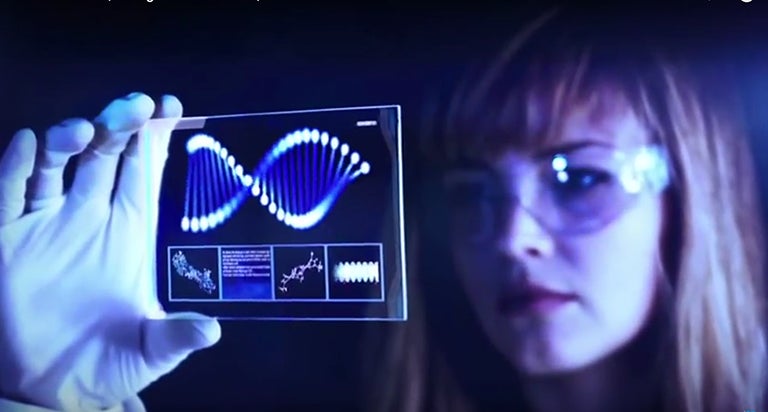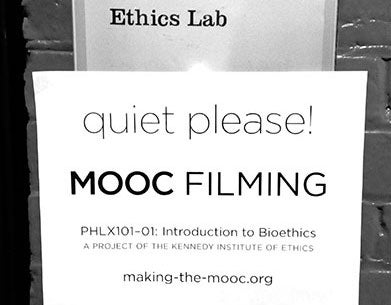Title: Georgetown’s Online Intro to Bioethics Set to Begin Next Week
Georgetown offers a six-week, massive open online course that tackles many of the bioethics issues people deal with on an everyday basis, starting April 15.

More than 25,000 people from 155 countries have enrolled in Georgetown’s Introduction to Bioethics massive open online course (MOOC), offered throughedXandbeginning April 15.
Designed by Georgetown’sKennedy Institute for Ethics (KIE), the six-week course tackles many of the issues people deal with on an everyday basis.
“In virtue of being embodied creatures, and the specific kind of biological creatures we are, we face particular kinds of moral challenges,” says Maggie Little, an associate professor and director of KIE. “We are vulnerable to disease, we give birth, we die.”
Grappling With Questions
“We use technology and culture to shape our own biology, to extend life, challenge our biological limits [and] manipulate our bodies and our planet,” she adds. “All of these facets of the embodied human experience generate ethical questions, and the attempt to grapple with these questions is what we call bioethics.”
Bioethics is a relatively new field that brings together many disciplines, including philosophy, law, medicine and environmental science. Students don’t need a background in any of these disciplines to take the course, she says, but they will leave having learned about topics in each area.
Each week of the course will center on a theme, such as the beginning or the end of life, and will be led by two professors.
Seven Faculty Teaching
“We’ll take issues like abortion, food ethics and climate justice and give people an introduction to what the controversy is, but then do what we are calling ‘deep dives’ on some critical distinctions and concepts that oftentimes get lost in the heat of debate,” Little explains.
The course will be taught by seven Georgetown faculty members – Little, Tom Beauchamp,Madison Powers,Karen Stohr, Rebecca Kukla, Robert Veatch and John Keown.
Little says the course gives students the opportunity to hear from seven leaders in the field, each with their own teaching style.
“There’s a personality for everyone,” she says.
Trust and Community

The Kennedy Institute of Ethics began planning and shooting for the bioethics course earlier this semester and has carefully selected which aspects are best portrayed by lecture, visuals or discussion.
During months of planning, Little and her colleagues scrutinized their pedagogical goals and carefully chose aspects of the course were best portrayed by lecture, visuals, or discussion.
“How do you create a community of learners when it’s online, which can feel anonymous, and how do you create a sense of continuity and trust in a course where you have seven faculty?” Little said.
These elements of trust and community are critical for a course on bioethics, which explores controversial and often personal issues.
Pressing the Why
“One of the things we’ve talked about is [that] online forums can often bring out the worst in people,” she notes. “One of the challenges we’ve given ourselves is – what would it take to scaffold a respectful, thoughtful community on difficult topics?”
Little hopes thatIntroduction to Bioethicswill help individuals understand the nuances of issues surrounding life and death, health care, climate change, food ethics, and emerging technologies.
“It’s not about what you believe but why,” Little says. “And when you really try to press the why, you often end up refining your views and understanding how people tussle with it.”